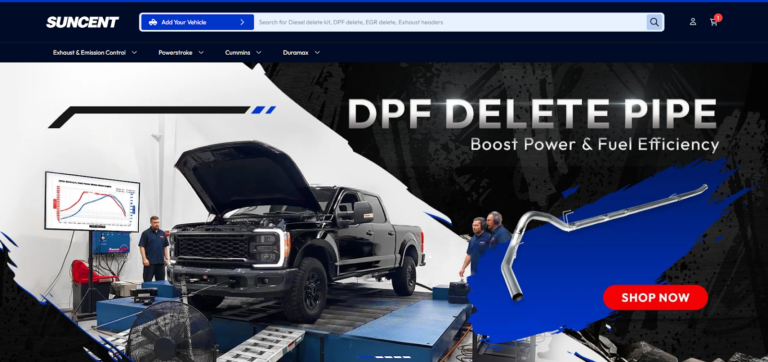Future-Proofing the Workforce: The Role of Supply Chain Recruiters in 2030
As global markets evolve, supply chains are facing unprecedented complexity. From emerging technologies and sustainability demands to geopolitical risks and shifting consumer expectations, the industry is on the brink of transformative change. By 2030, the supply chain workforce will look drastically different from today — and the role of specialized recruiters will be at the heart of this transformation.
Future-proofing the workforce is no longer a nice-to-have strategy; it’s an absolute necessity. Organizations that fail to adapt their hiring practices risk falling behind in a hyper-competitive landscape. Supply chain recruiters are uniquely positioned to bridge the skills gap, anticipate future talent needs, and ensure businesses are prepared for what lies ahead.
The Shifting Talent Landscape
In 2030, the skills required to succeed in supply chain management will extend far beyond operational expertise. With automation, artificial intelligence (AI), and predictive analytics becoming standard tools, data literacy and tech proficiency will be baseline expectations. Leaders will also need advanced problem-solving abilities, adaptability, and cross-cultural communication skills to navigate global operations.
The challenge is that these skill sets are not always found in traditional supply chain candidates. Recruiters will need to broaden their search parameters, identifying professionals from diverse industries who can bring fresh perspectives while still fitting into the operational demands of the supply chain sector.
Why Specialized Recruiters Will Be Crucial
General recruitment agencies may have broad reach, but supply chain recruiters have a deep understanding of industry-specific challenges and future trends. By 2030, these recruiters will be more than headhunters — they will act as strategic advisors to businesses, helping them:
- Map out future talent needs based on industry projections.
- Identify transferable skills from emerging and adjacent sectors.
- Build diverse teams capable of navigating both digital transformation and cultural shifts.
In other words, they won’t just be filling positions; they will be shaping the future workforce.
Technology’s Role in Shaping Recruitment
Technology will be a double-edged sword for supply chain recruitment. On one hand, AI-driven recruitment platforms will help automate resume screening, candidate matching, and skill assessment, reducing time-to-hire. On the other, this same automation means recruiters must focus more on the human side of hiring — assessing cultural fit, leadership potential, and adaptability in the face of rapid change.
Recruiters will also need to leverage predictive analytics to anticipate hiring needs before they become urgent. This forward-thinking approach allows companies to proactively build talent pipelines rather than scrambling in reaction to shortages.
In fact, as highlighted in this comprehensive review of the best supply chain recruiters, the most effective recruiters are already combining industry knowledge with cutting-edge hiring tools to secure top-tier talent in a highly competitive market. By 2030, this combination will no longer be optional — it will be the standard.
The Growing Importance of Cultural Alignment
In the future, technical skills will be important, but cultural alignment may be the deciding factor in successful hires. Supply chains are inherently global, and teams often span multiple time zones, languages, and cultural norms. A workforce that thrives in this environment must share the company’s values, collaborate effectively, and maintain resilience during crises.
Recruiters will increasingly prioritize candidates who not only meet the technical requirements but also possess the emotional intelligence and interpersonal skills to fit seamlessly into diverse teams. This focus on cultural fit will reduce turnover, improve performance, and strengthen organizational resilience.
Preparing for Sustainability and Ethical Supply Chains
By 2030, sustainability will no longer be an optional corporate initiative — it will be a legal and ethical mandate. Supply chain professionals will need expertise in sustainable sourcing, circular economy principles, and compliance with environmental regulations.
This shift will place additional pressure on recruiters to find candidates who are not only technically skilled but also committed to ethical business practices. Specialized supply chain recruiters will be uniquely positioned to identify individuals who can drive sustainability strategies without compromising efficiency or profitability.
Building Talent Pipelines for the Next Decade
One of the most valuable roles supply chain recruiters will play is the creation of long-term talent pipelines. Instead of reacting to vacancies, they will work with companies to forecast talent needs, engage with potential candidates over time, and ensure that when a role opens, the right person is already in the network.
Recruiters will also partner with educational institutions, industry organizations, and government programs to develop training pathways for the next generation of supply chain professionals. This proactive approach will help close the talent gap and prepare the workforce for the evolving demands of the industry.
Challenges Recruiters Must Overcome
While the future offers immense opportunity, it also presents significant challenges for supply chain recruiters:
- Global competition for talent will intensify as industries worldwide seek similar skills.
- Retention strategies will become just as important as recruitment efforts.
- Technological disruption will demand continuous learning and adaptation from both recruiters and candidates.
Overcoming these challenges will require a combination of strategic planning, deep industry insight, and the ability to balance human relationships with technological efficiency.
Looking Ahead to 2030 and Beyond
By 2030, supply chain recruiters will be more important than ever. Their role will expand from simply sourcing candidates to becoming architects of the workforce, helping companies navigate disruption, embrace innovation, and maintain a competitive edge in an unpredictable global market.
The companies that succeed will be those that invest in specialized recruitment partnerships, prioritize cultural fit alongside technical skill, and continuously adapt their hiring strategies to meet future challenges head-on.
As we look toward this future, organizations that want to thrive in the coming decade will benefit from working with recruitment partners who understand these dynamics inside and out. Scope Recruiting has built a reputation for deep industry expertise and forward-thinking talent strategies — qualities that will be indispensable for businesses determined to future-proof their supply chain workforce.
Keep an eye for more latest news & updates on Wheonx!






